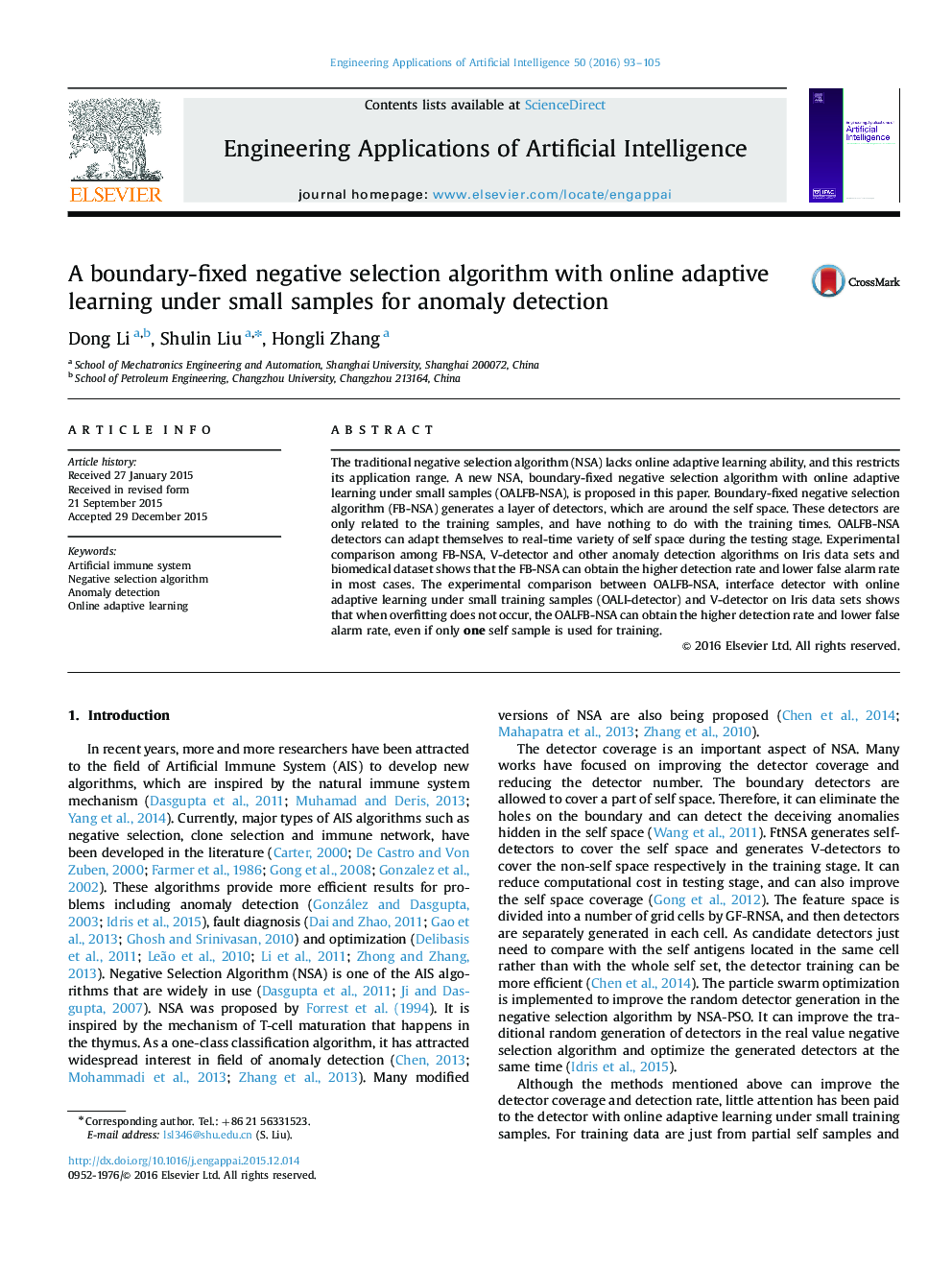| Article ID | Journal | Published Year | Pages | File Type |
|---|---|---|---|---|
| 6854356 | Engineering Applications of Artificial Intelligence | 2016 | 13 Pages |
Abstract
The traditional negative selection algorithm (NSA) lacks online adaptive learning ability, and this restricts its application range. A new NSA, boundary-fixed negative selection algorithm with online adaptive learning under small samples (OALFB-NSA), is proposed in this paper. Boundary-fixed negative selection algorithm (FB-NSA) generates a layer of detectors, which are around the self space. These detectors are only related to the training samples, and have nothing to do with the training times. OALFB-NSA detectors can adapt themselves to real-time variety of self space during the testing stage. Experimental comparison among FB-NSA, V-detector and other anomaly detection algorithms on Iris data sets and biomedical dataset shows that the FB-NSA can obtain the higher detection rate and lower false alarm rate in most cases. The experimental comparison between OALFB-NSA, interface detector with online adaptive learning under small training samples (OALI-detector) and V-detector on Iris data sets shows that when overfitting does not occur, the OALFB-NSA can obtain the higher detection rate and lower false alarm rate, even if only one self sample is used for training.
Related Topics
Physical Sciences and Engineering
Computer Science
Artificial Intelligence
Authors
Dong Li, Shulin Liu, Hongli Zhang,
